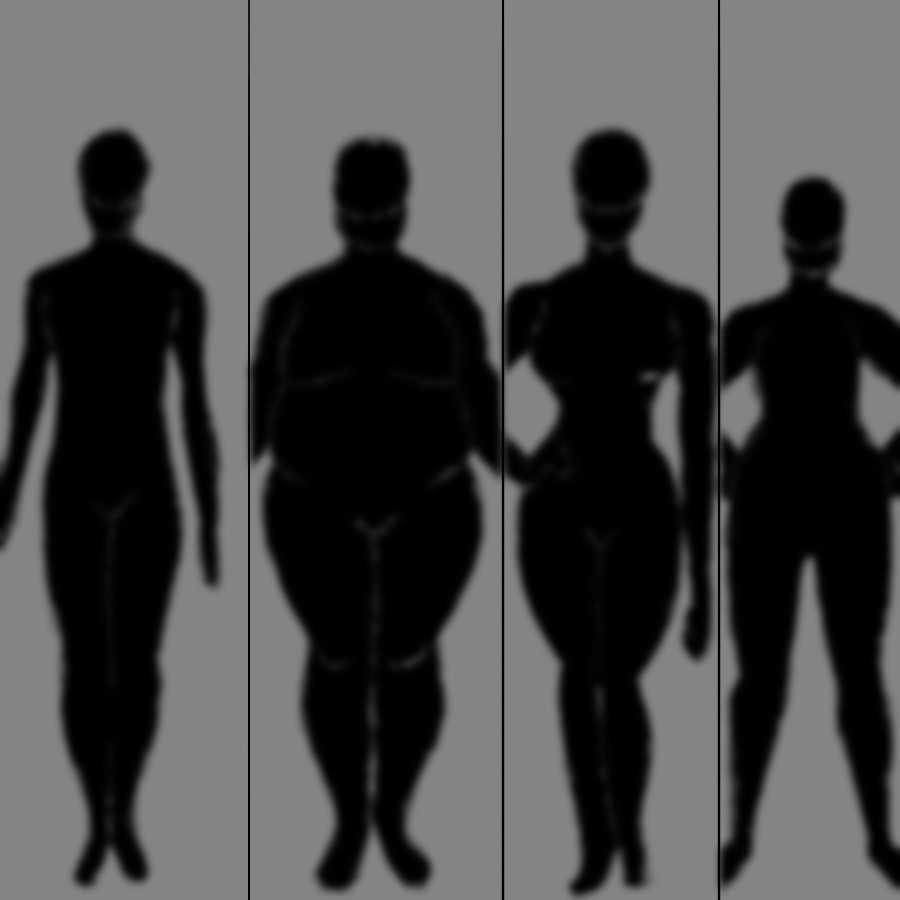Opinion | The body positivity movement is for all sizes, but not for smaller sizes to take over
October 11, 2022
I am so sick and tired of people debating about the body positivity movement. I am tired of discussing whether or not plus-sized people are deserving of love and acceptance as equal members of society. And most of all, I’m sick of people becoming figureheads of a movement that is not for them to take over.
So, here I am, talking about the body positivity movement just a little bit more.
Plus-sized people started the body positivity movement in the 1960s to advocate for fat acceptance in society. Their mantra “Change society, not ourselves” is still echoed by activists today. While the body positivity movement is representative of all shapes and sizes, there is not a single reason for skinny people to lead this movement.
It’s a trend I’ve begun to see across social media the last couple months that feels more damaging than good. Not that long ago, plus-sized people across a whole range of sizes made a place for themselves on the timelines and “For You” pages discussing acceptance of plus-sized individuals. Now I see little representation and the same two or three “large” sizes with flat stomachs talking about the same acceptance. It’s a good thing that all sizes are advocates, don’t get me wrong, but what happened to everyone else? What happened to the wide range of sizes advocating for one another and for the acceptance of fat people?
Body positivity is meant for everyone regardless of size, but the simple truth is that the lived experiences of fat people do not compare to those of skinny people. And nobody other than fat or previously fat people will understand the reality of living with a bigger body. Consistently, fat people are called disgusting, compared to pigs and cows, discriminated against in the workplace and even have their lives debated as if they are not worthy of the same things as thin people.
There’s no one better to speak about body positivity and acceptance than fat people, because at the end of the day, they are who the movement is fighting for. I do feel for anybody who’s ever been made fun of for what they look like. Getting called “a stick” or told to “eat a hamburger” isn’t okay in any way. And I also understand struggling with body dysmorphia and “feeling fat,” as so many people like to say.
Here’s a hot take that shouldn’t be as steamy as it is — the personal feelings of skinny people should never trump the lived experiences of fat people. Someone telling you to eat will never be the same as someone telling you to starve. At the end of the day, skinny people are the standard in society. It doesn’t matter what you feel about yourself or the rude jokes people make at your expense — you have the ideal body type. Nothing will change that.
That is why skinny people should never take the helm when it comes to body positivity. While the movement includes you, this fight is not for you. Your clothes will always be in stock, your doctor won’t brush aside any health issues and you won’t have to experience discrimination in the workplace due to your size. You are not discriminated against, fat people are. While there is power in being privileged enough to help lift people’s voices up, you should never be the main voice. Ever. A skinny person should uplift fat people’s voices, not take over. It’s not too difficult of a concept to grasp.
When skinny people take the helm of the body positivity movement, they are silencing the voices of fat people — the voices that need to be uplifted the most. The movement is taken less seriously and is skewed to only represent smaller people. While those in the smaller sizes on the plus-sized scale may reap the benefits, they are far more advanced than those in the higher sizes who deserve the same equality as others as well.
The average sized woman in America is around a size 16 or 18 — she’s plus sized. Despite being the norm, she is consistently discriminated against. And now, in a movement meant to uplift her, the voices of smaller individuals are overshadowing hers. It’s a fantastic thing to advocate for those who are discriminated against when you yourself don’t face discrimination, but when you begin to control the narrative it becomes dangerous for the movement’s success.
If skinny people become the face of the movement, its whole purpose falls apart. The body positivity movement is yours to be a part of — skinny-shaming is a real thing — but it is far less integrated and normalized than fat-phobia. The body positivity movement was started to uplift the voices of fat people, not yours.
Livia LaMarca mostly writes about American political discourse and pop culture. Write to her at [email protected].









